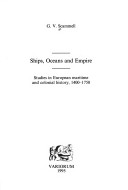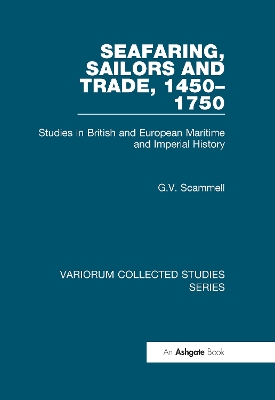Variorum Collected Studies
2 total works
CS 478
English merchant shipping at the end of the Middle Ages - some East Coast evidence; manning the English merchant service in the 16th century; shipowning in the economy and politics of early modern England; European seamanship in the great age of discovery; the English in the Atlantic Islands, c 1450-1650; the sinews of war - manning and provisioning English fighting ships, c 1550-1650; European shipowning in the Estado da India, 1500-1700; European exiles, renegades and outlaws and the maritime economy of Asia, c 1500-1750; the new worlds and Europe in the 16th century; (Richard) Hakluyt and the economic thought of his time; indigenous assistance in the establishment of Portuguese power in Asia in the 16th century; the pillars of empire - indigenous assistance and the survival of the Estado da India, c 1600-1700; essay and reflection - on the discovery of the Americas and the spread of intolerance, absolutism and racism in early modern Europe; the Columbian legacy.
This second volume of articles by G.V. Scammell offers new insights into the history of British and European shipping in the centuries of Europe's penetration into the oceans of the world, from the 15th to the 18th century. It examines the building, ownership and operation of merchantmen in the context of economic and social developments of the period, combining this with the investigation of the vital, but still comparatively neglected, subjects of the lives, working conditions, beliefs, skills and behaviour of seamen. This is the basis for discussion of the means and methods by which British shipping and merchants established themselves in oceanic trades, including those of other powers, considered in relation to the growth of British maritime and commercial supremacy. The final studies then examine the causes and consequences of European and British seaborne expansion, particularly in Asia.

